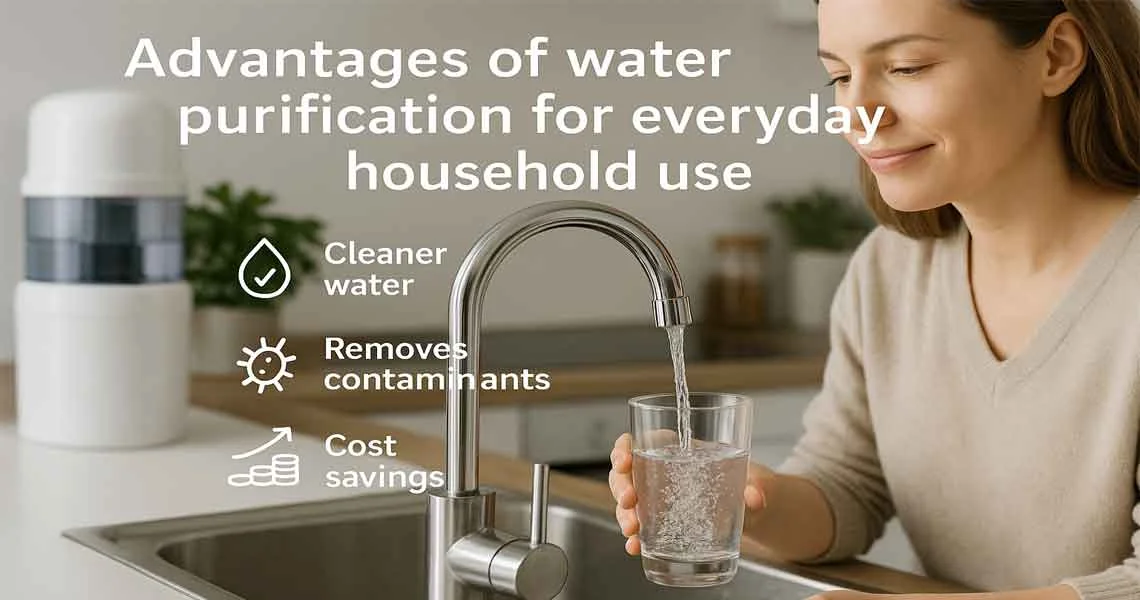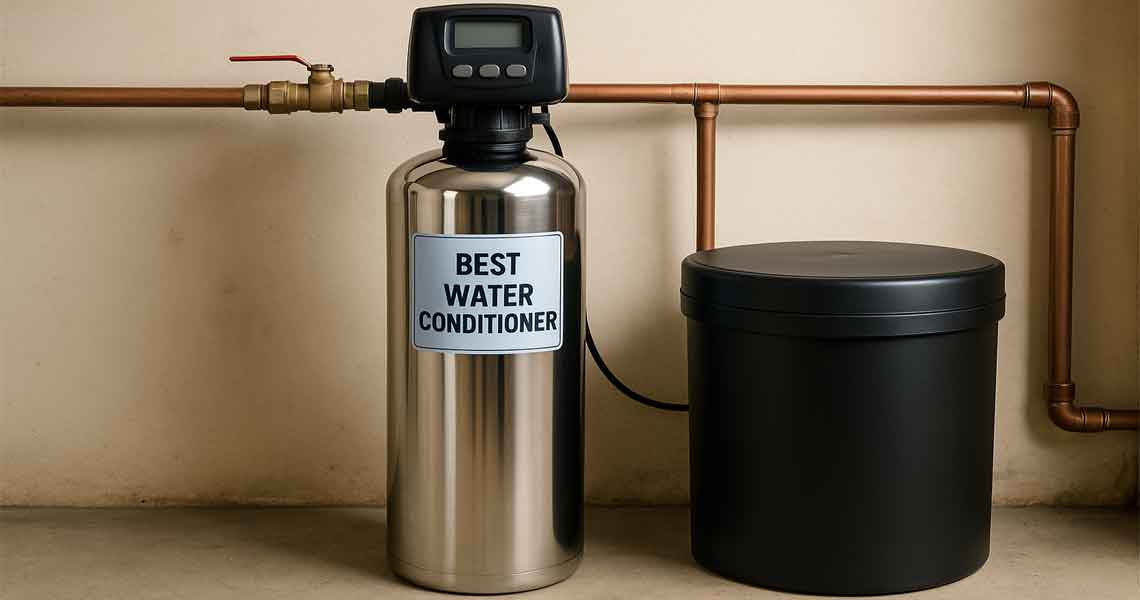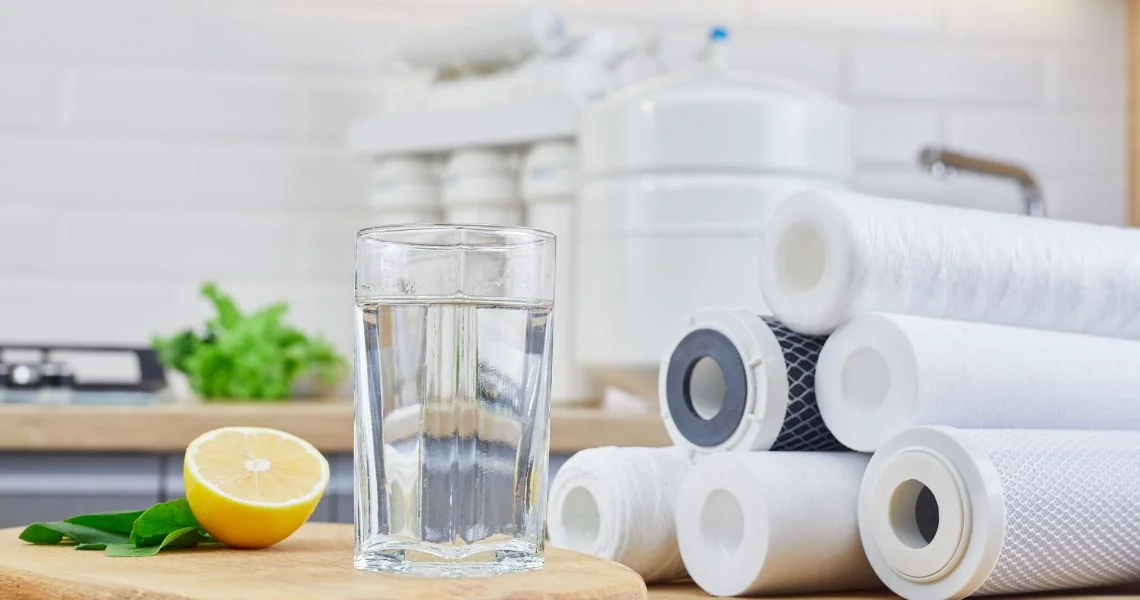The widespread occurrence of hard water creates challenges by inducing scale buildup, blocking pipes, and diminishing appliance functionality. The purchase of a high-quality water softener offers substantial advantages against hard water problems. What are the steps to determine the best water softener for your household needs? This guide will guide you through the decision-making process to identify the perfect water-softening equipment for your requirements.
Understanding Hard Water and Its Effects
The mineral content of hard water consists primarily of calcium and magnesium. Hard water brings several issues that do not affect your health but result in multiple difficulties, including:
- Scale buildup on faucets, showerheads, and appliances.
- Reduced efficiency of water heaters and dishwashers.
- Dry skin and dull hair.
- People require more soap and detergent when they use hard water.
Water softening equipment extracts minerals from the water supply, producing cleaner water that feels softer.
Factors to Consider When Choosing a Water Softener
Water Hardness Level
Testing your water hardness should be your first action before choosing a system. You can find water quality reports in most cities or purchase a home test kit to do the tests yourself. A hardness measurement represents the quantity of grains present in one gallon of water:
- 0-3 GPG: Soft water
- 3-7 GPG: Moderately hard water
- 7-10 GPG: Hard water
- 10+ GPG: Very hard water
The water hardness level determines the strength of the water softener necessary for proper treatment.
Household Water Usage
Assess your household’s daily water consumption. A system with higher grain capacity is needed for a house with many occupants because it allows for steady soft water delivery without frequent regeneration procedures. On average, a family consisting of four members consumes between 300 and 400 gallons every day.
Type of Water Softener
Different types of water softeners exist for selection.
- Salt-based ion Exchange Softeners are the most widespread water softeners. They replace hard minerals using resin beads and sodium.
- Salt-free water Conditioners act as protective barriers to stop hard minerals from creating scale accumulation on surfaces.
- Dual-tank softeners maintain an endless supply of soft water for larger homes by allowing tanks to cycle through each other.
- Electromagnetic softeners and electronic alternatives modify mineral electromagnetic characteristics yet provide limited effectiveness against water with high mineral content.
When comparing top water softeners, it’s essential to evaluate efficiency, maintenance requirements, and your local water hardness level before investing.
Best Water Softener for Your Location
The water hardness level in Florida demands a water softening system that can effectively handle the intense mineral concentration in the local water supply. When selecting a water softener for Florida ownership, you need to consider systems that combine high grain capacity, efficient regeneration cycles, and strong humidity resistance capabilities. For homes in the region, a residential water conditioning system Florida is often recommended due to its tailored performance against regional water conditions. Many brands highlighted among the best water softener 2024 models also perform well under Florida’s unique climate.
Efficiency and Regeneration Process
Automatic regeneration technology in modern softeners enables resin bead cleaning and sodium recharge. Some units feature:
- Time-Based Regeneration: Regenerates at set intervals, regardless of usage.
- Demand-Initiated Regeneration: Systems with Demand-Initiated Regeneration function only upon need, thus preserving water and salt savings.
Choose a system that will regenerate the unit only when needed to achieve optimal efficiency.
Finding the Best Water Softener for Your Home
Your ideal home water softener selection depends on essential factors such as household size, water hardness level, and personal preferences. Look for features such as:
- High efficiency: Uses minimal water and salt.
- Digital controls: Digital controls provide users with convenient programable settings.
- Compact design: Fits in small spaces.
- Low maintenance: Requires minimal upkeep for hassle-free operation.
When navigating how to choose water filtration system setups for your household, seeking expert help can simplify the process. A professional can evaluate your water quality and help you choose the most effective solution—whether that’s a water softener or a whole house filtration system. For those exploring complete water treatment solutions, it’s wise to compare the best whole house water filtration system options before making a purchase.
Maintenance Tips for Extending Water Softener Life
Include a section with practical tips such as:
- Keep an eye on the salt level inside your water softener’s brine tank and refill it whenever it gets too low.
- A thorough cleaning every 6–12 months helps maintain the softening capacity of the resin and ensures consistent water quality.
- Sometimes, a hard crust of salt (called a salt bridge) forms inside the brine tank, stopping the water from reaching the salt properly.
- Even if you perform regular maintenance, scheduling a professional inspection once a year helps identify hidden issues.
Common Water Filtration Problems and How to Avoid Them
Briefly explain typical issues such as:
- Regularly checking your unit’s salt dosage and adjusting it to match your household needs can solve this problem.
- Minerals and impurities can clog the resin bed over time, slowing down water flow through your taps and appliances.
- Setting your system to demand-initiated regeneration ensures it only regenerates when necessary, saving both water and money.
- Standard water softeners struggle in regions with high iron levels, leading to reddish stains on sinks and appliances.
When selecting your system, you may also explore best water filtration systems for the home to address any impurities beyond mineral hardness.
Conclusion
Choosing appropriate water softening equipment delivers better water quality while protecting your plumbing systems and sustaining the longevity of your home appliances. Selecting a water-softening system requires evaluating water hardness, household size, efficiency, and local conditions to find the perfect system for your needs. Investing in a high-quality system becomes essential for people who need the best water softener for home or a compact model for small homes. For households interested in complete protection from contaminants and minerals, exploring the best whole home water filtration systems is also a wise consideration. Contact us now.
FAQs
- How do I determine the right water softener for my home? Choosing a water softener depends on water hardness measurements, the number of household members, and daily water consumption rates. A professional water testing service will help you select the system that best matches your requirements.
- What is the best water softener for Florida homes? Florida residents need a water softening system that maintains outstanding performance when treating the state’s hard water. A high-efficiency salt-based softening system that demonstrates durability must be selected as an answer to Florida’s naturally hard water conditions.
- How often do I need to maintain my water softener? Most water softening systems need periodic sodium chloride salt refilling and resin cleaning procedures. The manufacturer’s instructions guide maintenance, but the standard is one annual check-up to achieve peak performance.
- Is a water softener necessary for every home? Installing the best water softener for your home will help protect your plumbing system while extending the lifespan of the equipment and creating better pipe quality for all your household water activities. A household that utilizes soft water does not necessarily require a water-softening system.
- Can I install a water softener myself? The installation process becomes most effective when professionals handle it unless you understand the complete water softener setup. Efficiency with no plumbing risks results from a correct setup.





